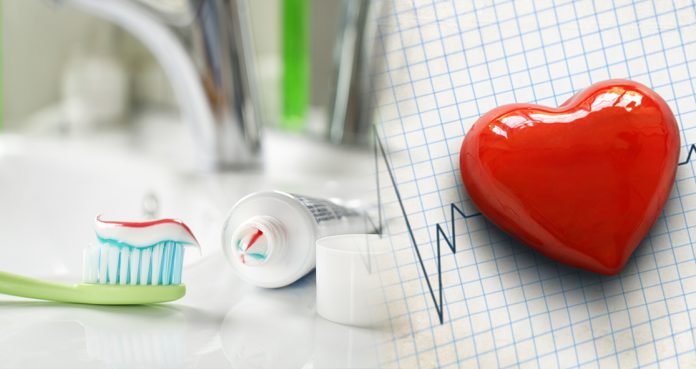A new study published in the European Journal of Preventive Cardiology has found that brushing your teeth at least three to four times daily could significantly reduce the risk of atrial fibrillation (AFib) and heart failure.
Previous studies have found that poor oral health is linked to pancreatic and esophageal cancer risk, respiratory problems, and even cardiovascular issues. For instance, one study found that serious gum disease increases the risk of high blood pressure.
The new study has suggested that regularly brushing your teeth could keep you from AFib and heart failure.
Senior study author Dr. Tae-Jin Song and his team explained that the motive behind the study is to determine the role of inflammation. The authors wrote, “Poor oral hygiene can provoke transient bacteremia and systemic inflammation, a mediator of atrial fibrillation and heart failure.”
The team also explained the association between Afib and both poor oral hygiene and heart failure.
In the United States, AFib affects more than 2.7 million people. The heart fails to efficiently pump blood in people with AFib because it does not beat regularly. Also, the heart fails to pump enough blood in people with heart failure, resulting in breathing difficulties and fatigue because the oxygen supply is reduced.
The study participants were asked questions about their oral health and hygiene habits, and lifestyle. They also underwent certain lab tests, including blood works, urinalysis, and blood pressure monitoring.
The participants were followed up for more than 10 years. More than 4,900 participants received a diagnosis of AFib and over 7,970 developed heart failure.
The researchers found that those who brushed their teeth three or more times a day had a 10 percent lower risk of developing AFib and 12 percent lower risk of heart failure.
“Improved oral hygiene care was associated with decreased risk of atrial fibrillation and heart failure. Healthier oral hygiene by frequent tooth-brushing and professional dental cleanings may reduce the risk of atrial fibrillation and heart failure,” the authors concluded.
However, they noted that the study was observational and had a few limitations.
Dr. Song said, “We studied a large group over a long period, which adds strength to our findings.” “The causality of these associations is unclear, and it is certainly too early to recommend tooth-brushing for the prevention of [A-fib] and [congestive heart failure],” the authors added. “While the role of inflammation in the occurrence of cardiovascular disease is becoming more and more evident, intervention studies are needed to define strategies of public health importance.”




















